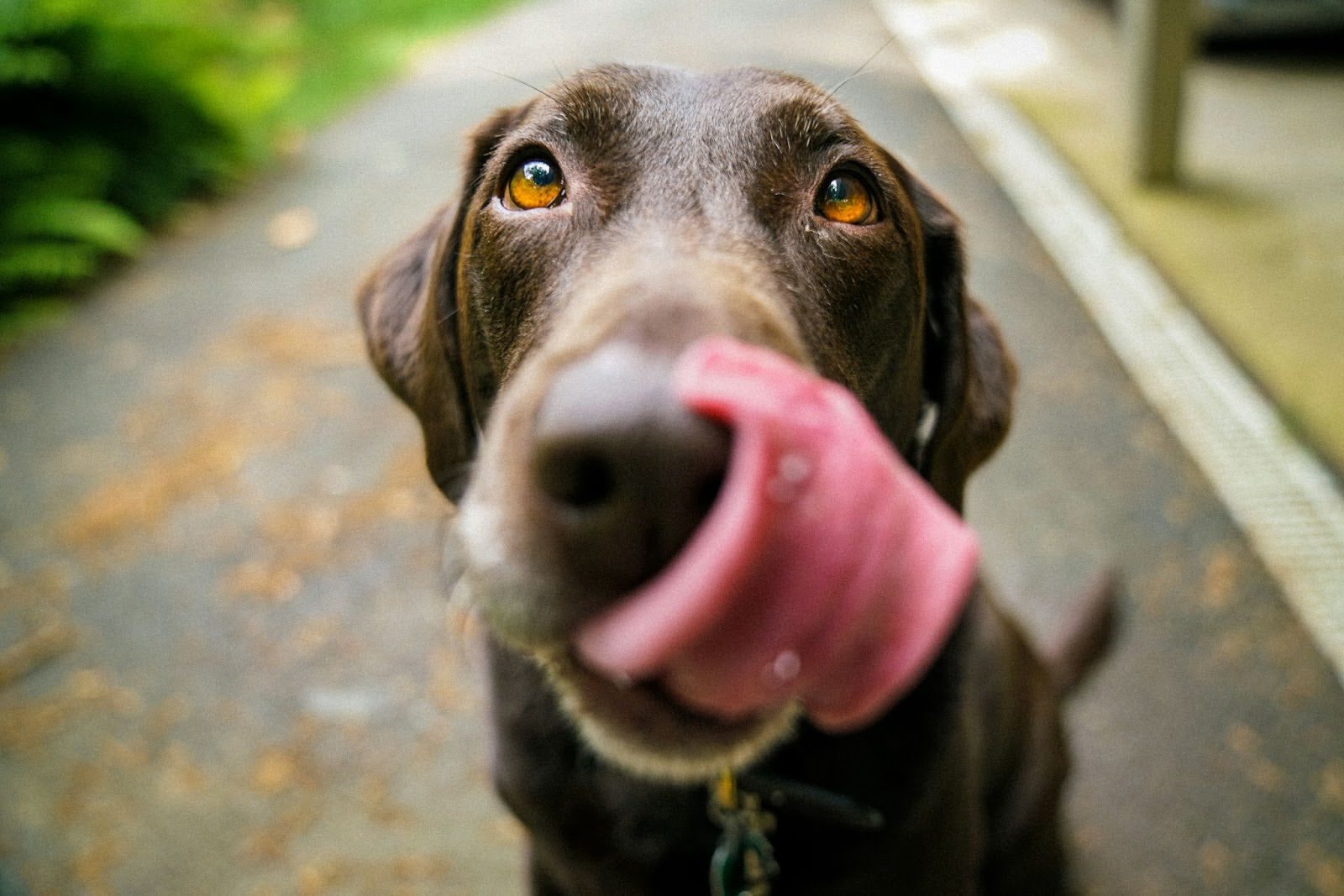Many dog owners are curious about what they can and can't feed their beloved furry companions. One popular question that often arises is whether dogs can safely snack on pepperoni. Pepperoni is a type of Italian-American sausage made from cured pork and beef, seasoned with various spices, including black pepper, paprika, and garlic. While pepperoni may be a tasty treat for humans, it raises concerns when it comes to our canine friends. This article from the dog-loving crew at Under the Weather will explore the potential risks associated with feeding pepperoni to dogs, as well as safe snack alternatives for our beloved pets.

Understanding the Ingredients in Pepperoni
Before dissecting the safety of pepperoni for dogs, it's important to understand the ingredients involved. Pepperoni typically contains a combination of cured pork and beef, mixed with seasonings and additives. Let's take a closer look at some of the key components:
The Role of Sodium in Pepperoni
One notable ingredient found in pepperoni is sodium. Sodium is a mineral that plays a vital role in various bodily functions. It helps maintain proper fluid balance, nerve function, and muscle contraction. However, excessive sodium consumption can be detrimental to a dog's health.
Dogs have different sodium requirements compared to humans. While sodium is necessary for their overall well-being, consuming excessive amounts can lead to dehydration, increased thirst, and potentially even sodium ion poisoning. Sodium ion poisoning, also known as salt poisoning, occurs when a dog ingests a dangerous amount of sodium, overwhelming their body's ability to excrete it. This can result in symptoms such as vomiting, diarrhea, tremors, seizures, and in severe cases, even death. Therefore, it's crucial to monitor and limit your dog's sodium intake.
Spices and Additives: Potential Risks
Another concern when it comes to pepperoni is the presence of spices and additives. While these ingredients may enhance the flavor, some spices can be toxic to dogs. For example, garlic and onion, both commonly used in pepperoni seasoning, contain compounds that can damage a dog's red blood cells and lead to anemia.
Anemia is a condition characterized by a decrease in the number of red blood cells or a decrease in the amount of hemoglobin in the blood. It can result in symptoms such as weakness, lethargy, pale gums, rapid breathing, and increased heart rate. In severe cases, it can even be life-threatening. Therefore, it's important to be cautious when feeding your dog pepperoni or any food that contains garlic or onion.
Additionally, some additives, such as preservatives and artificial flavors, may cause digestive upset or allergic reactions in certain dogs. Dogs can have sensitivities or allergies to certain ingredients, and consuming pepperoni with these additives may trigger symptoms such as diarrhea, vomiting, itching, or skin rashes.
It's worth noting that not all pepperoni brands or types contain the same ingredients. Some may have higher sodium content or different spice blends. Therefore, it's essential to carefully read the labels and consult with your veterinarian to determine if pepperoni is safe for your dog and in what quantities.
The Digestive System of Dogs
Understanding how dogs digest food can further shed light on whether pepperoni is a safe option for them. The digestive system of dogs is designed to process and break down foods that are biologically appropriate for their species.
Dogs have a complex digestive system that consists of several organs working together to ensure proper digestion and nutrient absorption. The process begins in the mouth, where dogs use their sharp teeth to tear and chew food into smaller pieces. Saliva is also released, which contains enzymes that initiate the breakdown of carbohydrates.
Once the food is swallowed, it travels down the esophagus and enters the stomach. Dogs have a relatively small stomach compared to humans, but it is highly acidic. This high acidity level helps to break down proteins and kill harmful bacteria that may be present in raw meat.
How Dogs Process Meat Products
Dogs are essentially carnivores, and their digestive system is well-adapted to digest and metabolize meat products. They have a shorter digestive tract and a higher stomach acidity level compared to humans, allowing them to process raw meats more efficiently. The stomach acid in dogs is capable of breaking down proteins into smaller amino acids, which can then be absorbed and utilized by the body.
In addition to the stomach, dogs also have a specialized organ called the pancreas, which produces enzymes that further aid in the digestion of proteins, fats, and carbohydrates. These enzymes are released into the small intestine, where the majority of nutrient absorption takes place.
The small intestine is lined with tiny finger-like projections called villi, which increase the surface area available for nutrient absorption. As the partially digested food passes through the small intestine, nutrients such as amino acids, fatty acids, vitamins, and minerals are absorbed into the bloodstream and transported to various parts of the body.
The Impact of Processed Foods on Dogs
While dogs are well-equipped to handle raw meats, the same cannot be said for processed foods like pepperoni. Processed foods often contain additives, flavor enhancers, and high levels of sodium, which can put a strain on a dog's digestive system.
Consuming excessive amounts of processed foods can lead to gastrointestinal issues, such as diarrhea, vomiting, and even pancreatitis, a potentially life-threatening condition characterized by inflammation of the pancreas. The high fat content in pepperoni, combined with the additives and preservatives, can overwhelm a dog's digestive system and lead to digestive upset.
It's important to note that every dog is unique, and their tolerance for processed foods may vary. Some dogs may be able to handle small amounts of pepperoni without any issues, while others may experience digestive discomfort even with a small bite. It's always best to consult with a veterinarian before introducing any new foods into your dog's diet.
Simply stated, while dogs have a digestive system that is well-adapted to process and metabolize meat products, processed foods like pepperoni should be given sparingly, if at all. Opting for fresh, unprocessed meats as a treat or supplement to their regular diet is a safer and healthier option for our canine companions.

Potential Health Risks of Pepperoni for Dogs
Feeding pepperoni to your dog may pose various health risks, including:
The Threat of Pancreatitis
As mentioned earlier, pancreatitis is a severe condition that can result from the consumption of fatty and processed foods. Pepperoni is high in fat, and the combination of the sodium content, spices, and additives found in this cured meat product can potentially trigger inflammation in a dog's pancreas. Pancreatitis can cause symptoms such as severe abdominal pain, vomiting, loss of appetite, and lethargy, and it requires immediate veterinary attention.
When a dog consumes pepperoni, the high fat content can overload the pancreas, leading to the release of digestive enzymes that can damage the organ. This inflammation can be painful and can disrupt the normal functioning of the pancreas, which is responsible for producing insulin and aiding in digestion.
In severe cases of pancreatitis, the pancreas can become permanently damaged, leading to chronic health issues and a decreased quality of life for the dog. It is crucial to avoid feeding pepperoni or any other high-fat foods to dogs to prevent the risk of pancreatitis.
Obesity and Heart Disease in Dogs
Pepperoni is also high in calories, fat, and sodium, which can contribute to weight gain and obesity in dogs. Obesity can lead to a variety of health issues, including joint problems, diabetes, and heart disease. Additionally, the high sodium content in pepperoni can contribute to hypertension, increasing the risk of heart disease in dogs.
When dogs consume excessive amounts of high-calorie foods like pepperoni, they can easily exceed their daily caloric requirements. The excess calories are stored as fat, leading to weight gain and obesity. Obesity puts additional stress on a dog's joints, increasing the risk of conditions such as arthritis and hip dysplasia.
Furthermore, obesity is a significant risk factor for developing diabetes in dogs. The excess body fat can interfere with insulin production and utilization, leading to insulin resistance and the development of diabetes mellitus. Diabetes can cause symptoms such as increased thirst, frequent urination, weight loss, and lethargy.
High sodium intake from pepperoni can also have detrimental effects on a dog's cardiovascular health. Sodium contributes to water retention, which can increase blood volume and put a strain on the heart. This can lead to hypertension, or high blood pressure, which is a risk factor for heart disease in dogs.
Prioritizing your dog's health and well-being by avoiding feeding them pepperoni or any other high-fat, high-sodium foods is key to their health and happiness. The potential risks of pancreatitis, obesity, and heart disease outweigh any temporary enjoyment your dog may experience from consuming these unhealthy treats. Instead, opt for dog-friendly and nutritionally balanced alternatives to keep your furry friend happy and healthy.
Safe Snack Alternatives for Dogs
While pepperoni may not be a suitable snack option for dogs, there are plenty of healthier alternatives that can satisfy their cravings:
Healthy Homemade Treats
Consider making homemade treats for your dog using ingredients that are safe and beneficial for their health. For example, you can prepare treats using lean meats, such as chicken or turkey, that are cooked thoroughly and free of added seasonings. Fruits and vegetables, such as carrots or blueberries, can also be included in homemade treats to provide added nutritional value.
Vet-Approved Commercial Snacks
Opt for commercially available dog snacks that are specifically formulated and approved by veterinarians. Look for treats that are made from high-quality ingredients, have a lower fat and sodium content, and are free from potentially harmful additives. Your veterinarian can provide recommendations based on your dog's specific dietary needs and any existing health conditions.
When Your Dog Accidentally Eats Pepperoni
Accidents happen, and sometimes dogs manage to snatch a pepperoni slice when we least expect it. If your dog accidentally consumes pepperoni, it is wise to take immediate action:
Immediate Steps to Take
- Remove any remaining pepperoni from your dog's reach to prevent further ingestion.
- Monitor your dog for any signs of distress or unusual behavior.
- Provide fresh water to keep your dog hydrated.
- Contact your veterinarian for guidance based on specific circumstances, such as the size of the dog, the amount of pepperoni consumed, and any pre-existing health conditions.
When to Consult a Veterinarian
If your dog shows any concerning symptoms, such as persistent vomiting, diarrhea, abdominal pain, unusual lethargy, or changes in behavior, seek veterinary assistance immediately. Your veterinarian will be able to assess your dog's condition and provide appropriate medical advice or treatment.
Conclusion
In conclusion, while pepperoni may be a delicious treat for humans, it is not a safe option for dogs. The high sodium content, spices, and additives present in pepperoni can pose various health risks and complications for our beloved pets. It's important to prioritize our dogs' well-being by providing them with healthy, dog-specific snacks that are approved by veterinarians. By being mindful of what we feed our dogs, we can help ensure their long-term health and happiness.
very Sale Supports a Shelter Pet. Learn More.
Created in Vermont. Learn More.
Written by: Min Lee
If you suspect your pet is sick, call your vet immediately. For health-related questions, always consult your veterinarian, as they have examined your pet, know the pet's health history, and can make the best recommendations for your pet.




